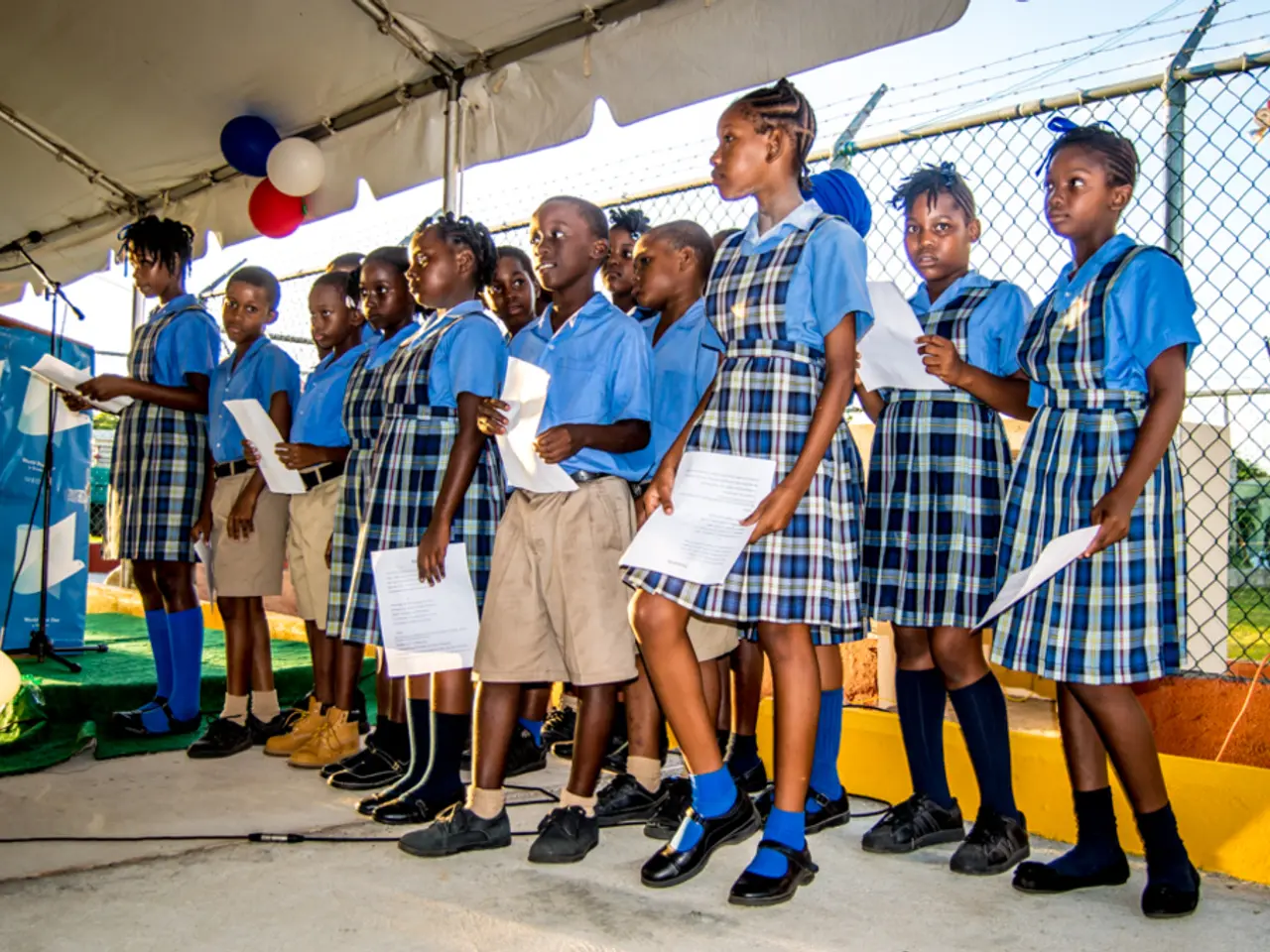Psychological Guidance for Aiding the Child in Transition to Grade One
Psychologist Anastasia Mironenko, a brand expert for emotional products at RIAMO, has shared several effective strategies to help kindergarteners adapt to the start of school.
Mironenko, who works for RIAMO, a company specializing in emotional products, emphasizes the importance of a consistent routine for children. Creating predictable daily schedules helps children feel secure and know what to expect, reducing anxiety during this stressful time.
One of Mironenko's key recommendations is to gradually introduce children to the school environment. Visiting the classroom or meeting the teacher beforehand can help children become familiar with their new surroundings, reducing anxiety and making the transition smoother.
Emotional support plays a crucial role in the adaptation process. Encouraging children to express their feelings and reassuring them helps them manage separation anxiety. Mironenko also stresses the importance of open dialogues with children, discussing not only what happened at school but also feelings, thoughts, small victories, and fears.
Positive reinforcement is another important aspect of Mironenko's approach. Praising children’s efforts and small achievements builds their confidence and motivation, making them more ready to take on the challenges of school.
Parental involvement is essential in the adaptation process. Maintaining open communication between parents and teachers ensures children receive consistent support, making the transition smoother for everyone involved.
Mironenko advises against overloading children with additional activities during the school transition. Adaptation is a resource-intensive process, and children need space for rest and recovery.
By combining these approaches, Mironenko emphasizes easing the child's transition into the new setting, fostering a sense of safety and readiness for learning. With Mironenko's approach, school can become a place of growth for the child, not worry.
Mironenko's interview highlights the importance of creating a daily routine for children starting school. Starting to build the new routine 1-2 weeks before September 1 can help ensure a smooth and stress-free transition.
In conclusion, Mironenko's strategies offer a gentle and effective approach to helping children adapt to the start of school. By focusing on consistency, gradual introduction, emotional support, positive reinforcement, and parental involvement, Mironenko's approach fosters a sense of safety and readiness for learning, making the start of school a positive experience for both children and parents.
- When discussing the news of Psychologist Anastasia Mironenko's recommendations, it's worth noting her emphasis on creating daily routines that incorporate topics from health-and-wellness, mental health, and parenting sectors.
- In the field of education-and-self-development, Mironenko's strategies include emphasizing emotional support, open dialogues, positive reinforcement, and parental involvement to help kindergarteners adapt to the start of school.
- Mironenko's approach to school adaptation is backed by her expertise in science, as she highlights the importance of creating predictable routines, gradually introducing children to the school environment, and avoiding overloading them with additional activities to ensure a smooth and stress-free transition for the child.




